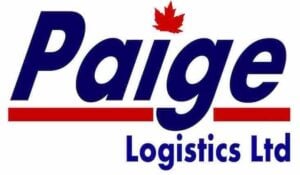When is it appropriate To Call for
flatbed trucks in shipping?
Understanding Flatbed Trailers
When it comes to logistics services shipping freight and construction logistics, choosing the right type of trucking services can be the difference between a successful and seamless delivery, or a costly and inconvenient one.
Be it for big machinery transportation or other types specialized trucking such as over dimensional freight, heavy haul, or less than a truckload freight, no matter what flatbed trucks are a popular choice for many businesses.
Not to be confused with dry vans or reefers, it’s important to know when it’s appropriate to use them.
In this article, we’ll explore the key considerations for determining when a flatbed truck is the best option for your shipping needs.
Find out when you should be using a flat Deck truck Bed for shipping and why it might be the best choice for your business!
As a business owner, you know that shipping is a crucial part of keeping your operations running smoothly.
Choosing the right type of truck for your shipments is an important decision, and flatbed trucks are a popular option for many businesses. But when is it appropriate to use a flatbed truck for shipping?
In this article, we’ll explore the types of flatbed trucks key factors to consider when deciding whether a flatbed truck is the right choice for your business.
First, let’s define what a flat deck trailer is.
A flatbed trailers is a type of semi-trailer truck that has a flat, open-top trailer with no sides or roof. This design allows for easy loading and unloading of large or awkwardly-shaped items that may not fit in a standard trailer.
Flatbed trucks are often used to transport construction equipment, machinery, and other heavy or bulky items.
So, when is it appropriate to use heavy-haul transportation or a flatbed truck for shipping? There are several factors to consider:
1. Size and dimensions of your shipment: Flat deck trailers are best suited for large and bulky items that may not fit in a standard trailer. If your shipment is too large or too heavy for a standard trailer, a flatbed truck is likely your best option.
2. Type of goods you are shipping: Flatbed trucks are ideal for shipping items that are not fragile and can withstand being exposed to the elements. This includes construction equipment, machinery, and other industrial items. If you are shipping more delicate or perishable goods, a flatbed truck may not be the best choice. Although there are flatbed tarping systems, these items may be damaged by wind, rain, or other weather conditions.
3. Distance of the shipment: If your shipment is going a long distance, you may want to consider using a flatbed truck. Flatbed trucks have a larger capacity than standard trailers, so you can often ship more goods in a single trip. This can save you money on shipping costs and reduce the carbon footprint of your business.
4. Accessibility of pickup and delivery locations: Flatbed trucks are not suitable for narrow or winding roads, or for areas with low overhead clearance. If your pickup or delivery location has these constraints which is common when shipping to California, you may need to consider alternative shipping methods.
In addition to these factors, there are a few other things to consider when deciding whether to use a flatbed truck for shipping:
1. Cost: Flatbed carriers typically have higher upfront costs than standard trailers, as they require specialized equipment and drivers. However, as mentioned above, they also have a larger capacity, so they may be more cost-effective in the long run if you are shipping a large volume of goods.
2. Safety: Flatbed trucks have some unique safety considerations to be aware of. For example, items shipped on a flatbed trailer must be secured properly to prevent them from shifting or falling off during transport. This requires additional time and effort, and may involve the use of straps, chains, or other restraints. Additionally, flatbed trucks may be more susceptible to wind and other weather conditions, which can affect stability and handling.
3. Time: Flat deck trailer may take longer to load and unload than standard trailers, as the items being shipped are often larger and heavier. This can be a factor to consider if time is of the essence in your shipping schedule.
Overall, flat deck trailers and conestoga trailer types are a reliable and efficient choice for shipping large and bulky items, particularly over long distances.
However, it’s important to carefully consider the size and type of your shipment, be it heavy cargo shipping services, cross-border shipping, or shipping China to Canada the distance of the shipment, and the accessibility of the pickup and delivery locations before deciding whether a flatbed trailer is the right choice for you.
By taking the time to weigh these factors, you can ensure that you are in the right place.
What kind of flat bed truck are there? When it comes to the world of heavy hauling and transportation, lowboy trailers are the unsung heroes.
These heavy-duty workhorses play a crucial role in moving oversized and overweight cargo safely and efficiently. If you’re new to the world of logistics or simply looking to expand your knowledge, this guide will walk you through the various types of lowboy trailers and their applications.
Fixed Neck Lowboy Trailer
Fixed neck lowboy trailers are known for their stability and durability. They feature a permanently attached front axle and deck, which is why they are often referred to as “fixed-neck” or “non-detachable” lowboy trailers. These trailers are ideal for consistently heavy loads, such as construction equipment and machinery.
Detachable Gooseneck (RGN) Lowboy Trailer
The detachable gooseneck lowboy trailer, commonly abbreviated as RGN, is incredibly versatile. Its front section, or gooseneck, can be detached and used as a ramp for loading and unloading equipment.
RGN lowboys are perfect for transporting tall and heavy cargo, like industrial machinery or wind turbine components.
Mechanical (Tilt) Lowboy Trailer
Mechanical lowboy trailers are designed for easy loading and unloading. They feature a hydraulically operated deck that tilts backward or forward, simplifying the process of getting heavy equipment on and off the trailer. This type is often used for smaller construction equipment and vehicles.
Hydraulic (Ramp) Lowboy Trailer
Hydraulic lowboy trailers are similar to mechanical lowboys but come equipped with hydraulically operated ramps. This feature allows for faster and smoother loading and unloading of heavy equipment like bulldozers and excavators.
Stretch Lowboy Trailer
Stretch lowboy trailers are adjustable in length, thanks to their telescopic design. They can be extended to accommodate longer cargo while providing the stability needed to transport heavy loads.
Stretch lowboys are commonly used for transporting construction equipment, bridge beams, and long steel pipes.
Mini Lowboy Trailer
Mini lowboy trailers are designed for hauling smaller and lighter loads, such as utility vehicles, small construction equipment, and landscaping machinery.
They are a more compact and cost-effective option for specialized transport needs.
Double Drop Lowboy Trailer
Double drop lowboy trailers, also known as low deck trailers, feature a lower deck in the middle, which allows for greater vertical clearance when transporting tall equipment.
These trailers are excellent for moving oversized machinery like transformers and industrial tanks.
Extendable Lowboy Trailer
Extendable lowboy trailers can be adjusted in length to accommodate different cargo sizes. They are versatile and suitable for various types of loads, making them a popular choice in the transport industry.
Lowboy trailers come in various types, each designed to meet specific transport needs. Whether you’re hauling heavy construction equipment, industrial machinery, or oversized cargo, there’s a lowboy trailer tailored to your requirements.
Understanding the different types of lowboy trailers and their applications is essential for anyone in the logistics and transportation industry, ensuring safe and efficient transport of valuable assets from one place to another.
Learn all the flatbed trailer types.

Author & Chief Executive Officer at Paige Logistics Ltd. → Experienced Operations Manager with a demonstrated history of working in the Transportation, Trucking and the Railroad Industry.

